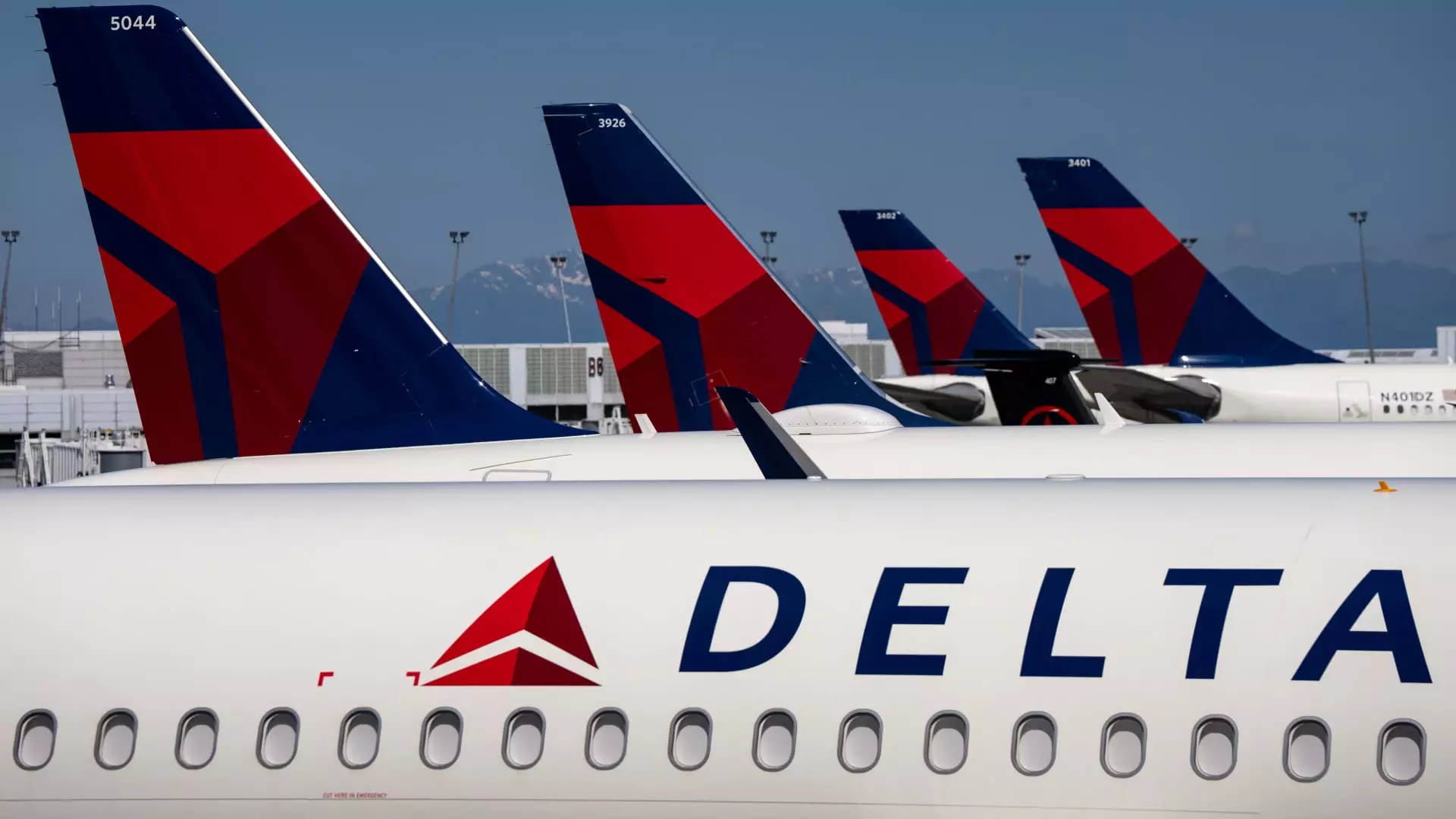Recent projections from Delta Air Lines, the United States’ leading airline in terms of profitability, reflect a concerning trend influenced by shifting political landscapes and economic uncertainties. Despite having started the year with hopes of robust travel demand, CEO Ed Bastian now admits that consumer and corporate confidence has taken a significant hit. This situation requires a critical assessment beyond mere financial estimates; the grim reality is that an airline once poised for potential record profits is facing mounting pressures, largely stemming from the current Administration’s trade policies.
Bastian’s acknowledgement that Delta’s flying capacity is unlikely to expand this year is telling. Initially, the airline had hoped to increase capacity by 3% to 4% in the second half of 2025, a figure now adjusted to flat growth year-over-year. This sudden pivot suggests not just an adverse reaction to market dynamics, but a deeper reflection of a governance system that continues to create uncertainty for businesses across the board. The contradiction in Delta’s expectation of a thriving travel sector compared to its recent retraction of growth plans underscores a growing distress that is rippling through the airline industry.
The Political Landscape: A Cloud Overhead
While Bastian previously described the Trump administration’s regulatory approach as a potential “breath of fresh air,” recent comments indicate he has recanted his optimism. The reality is that consumers are reluctant to spend in an environment riddled with unpredictability. Whether it’s business travel re-evaluations or governmental workforce reductions, businesses are grappling with mixed signals—an adversarial context that stifles growth.
The airline industry, particularly, has become a litmus test for broader economic health. Bastian’s observation regarding declining corporate travel demand is notable; it illustrates how politicians’ decisions can trickle down into tangible customer behaviors. The dissatisfaction among CEOs stands in stark contrast to the hopeful projections made just months earlier, suggesting systemic issues rather than mere temporary setbacks.
The Earnings Outlook: Expectations vs. Reality
Delta’s recently forecasted second-quarter revenue is expected to decline or barely maintain relative parity with last year’s figures, a far cry from Wall Street’s optimistic growth expectations of nearly 2%. With adjusted earnings per share anticipated to fall below analyst estimates, the airline’s fiscal climate echoes broader worries about sustainability within the travel sector. Investors and market analysts have been quick to revise their earnings expectations downward, a clear signal that the initial optimism has begun to wane.
Furthermore, signs of a slowing economy are illuminated by Delta’s prior reassessments. The first quarter’s results, while marginally better than anticipated, are overshadowed by the reduction in broader sales expectations for the second half of the year. Bastian’s sentiment resonates across the industry: it is rapidly becoming about “protecting margins and cash flow,” rather than building for expansive growth.
International Travel: A Silver Lining in Dark Clouds
Even amidst growing challenges, some segments of Delta’s operations have shown resilience. Premium and international travel continues to provide the airline with a buffer against the drop in main cabin bookings. As certain demographics maintain higher levels of travel, Delta’s focus on these segments could serve to cushion some of the financial impacts stemming from sluggish demand domestically.
However, this silver lining must be weighed carefully against the significant percentage of travelers who are avoiding costs associated with leisure and business travel altogether. Given that much of Delta’s profitability relies on a buoyant consumer market, the persistent uncertainty could still prove detrimental in the long run, particularly as economic policies continue to evolve unpredictably.
Delta Air Lines’ current predicament serves as a cautionary tale for the entire airline industry. Although the operational metrics may suggest that Delta remains profitable, fundamental challenges rooted in economic and political turmoil are fanning the flames of uncertainty. As companies prepare for earnings reports and adjust their forecasts downward, it’s imperative to understand that the implications of political decisions extend far beyond immediate financial results—they encompass overarching national confidence and consumer sentiment, critical drivers for industries dependent on public trust and spending. The question looming large is whether this trend will reverse, or whether we are looking at a more profound shift in how consumers interact with travel in an era marked by ambiguity and caution.

